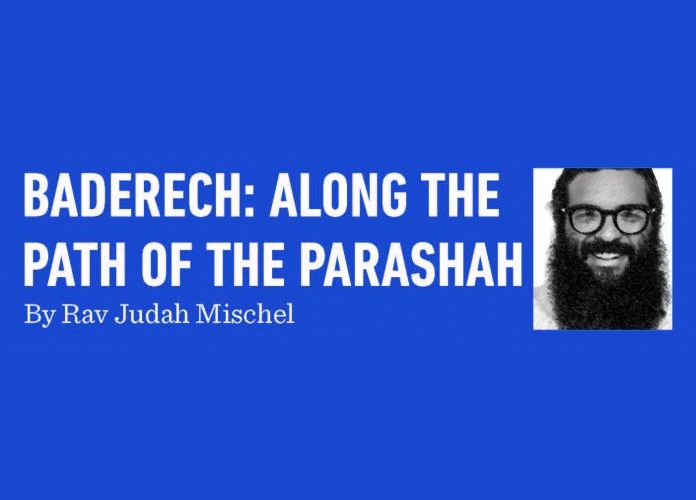The Watchers And Guardians
By Rabbi Reuven Chaim Klein
In the part of Leviticus that scholars call “The Holiness Code,” the Torah not only forbids a Jew from exacting revenge (nekamah) on a fellow Jew who may have wronged him, but even forbids a Jew from holding a grudge (netirah, lo titor) against another Jew who may have mistreated him (Lev. 19:18). Rashi famously illustrates the difference between these prohibitions by way of example: If somebody asked to borrow his friend’s sickle, but the friend refused, then the next day when that same friend asks to borrow one’s ax, one should not say, “I will not lend you my ax, just like yesterday you did not lend me your sickle” as this constitutes nekamah. But one should also not say “Here it is. I am unlike you who did not lend me,” as this constitutes netirah because one is harboring his ill will and negative mental conception against his friend by “guarding” it within his psyche. In this essay, we will explore three different Hebrew terms for “guarding/protecting” something—netirah, netzirah, and shemirah—and try to discern how these apparent synonyms differ from one another.
The term shemirah derives from the Hebrew root shin-mem-reish, which is one of the most common roots in the Bible (appearing over 400 times!). It generally refers to “watching/guarding,” or otherwise “overseeing” and “looking after” a particular something. It can also refer to a person needing to “watch” himself in the sense of being careful or mindful not to do something dangerous or forbidden. By contrast, the root of netzirah is nun-tzadi-reish and it appears a mere 60 or so times in the Bible. Of course, the term netirah (nun-tet-reish) is the least common of the bunch, as it appears only nine times in the Hebrew parts of the Bible (see examples below) and once in the Aramaic parts (Dan. 7:28). With the latter two terms, the initial nun is often dropped.
Interestingly, the Targumim indiscriminately use declensions of nun-tet-reish when translating forms of shemirah, netirah, and netzirah into Aramaic (for examples, consult with Rabbi Eliyahu Bachur’s Meturagman). This might mean that whatever nuanced differences might exist between these words in Hebrew, they entirely disappear in Aramaic, wherein the different meanings meld together. For example, the term neturei karta in Aramaic literally means “the guardians of the city.” Rabbi Dr. Asher Weiser (in Mikra V’Lashon) even writes that the roots nun-tzadi-reish and nun-tet-reish are almost used synonymously (especially because the letters tzadi and tet are often interchangeable) and there is only a slight nuanced difference between them. The particular nuance that he detects is that netirah refers to a more localized, specific “protection/guardianship,” while netzirah refers to “watching” something in a general sense.
One particular verse uses the terms shemirah and netzirah as a tandem: King Solomon touts the virtues of acquiring Wisdom, noting that among its properties it serves to “to safeguard [netzirah] the ways of justice / and the path of His [Hashem’s] pious ones, it watches [shemirah]” (Prov. 2:8). In explaining this passage, the Vilna Gaon (to Prov. 2:8) postulates that the term netzirah refers to a more substantial form of “watching” than shemirah does. He then uses this to explain how the verse in question refers to two architypes of the upstanding Jew: One devotes himself entirely to Torah study (the Torah scholar who is wholly immersed in the “ways of justice”), while the other devotes himself to performing mitzvot (“good deeds”) and is called a chassid (literally, “pious” Jew). One difference between them is that while there are many Jews who devote themselves to performing mitzvot, only a select elite can truly be said to devote themselves to Torah study. Another difference between them is that the Talmud (Sukkah 52a) states that the Evil Inclination works particularly hard at enticing the Torah scholars to sin.
Accordingly, the Vilna Gaon writes that in this passage, King Solomon is teaching how acquiring Wisdom can shield one from the machinations of the Evil Inclination and protect him from sin. But in this context, the Torah scholars require more protection than the chassid, so King Solomon used the term netzirahwhen referring to Wisdom protecting the Torah scholar because it implies a higher degree of “watching,” while he reserved the term shemirah for the chassid, who does not require as much protection form the Evil Inclination. n
This article has been excerpted from its original. Please visit 5TJT.com to read the full version.
Rabbi Reuven Chaim Klein is an author and freelance researcher based in Beitar Illit. He studied in Yeshiva Gedolah of Los Angeles, the Mir Yeshiva in Jerusalem, and Beth Medrash Govoha of America in Lakewood, and received semichah from leading rabbis. He also holds an MA in Jewish Education from Middlesex University/London School of Jewish Studies. Rabbi Klein authored two popular books that were published by Mosaica Press, as well as countless scholarly articles published in various venues. His articles on Hebrew synonyms are commissioned by Yeshivas Ohr Somayach in Jerusalem and have appeared on their website since 2016.















